Q. What inspired you to work in the tourism industry?
During my high school years, I used to work as a security officer at a hotel. Overtime, I realized that more and more foreign tourists falling in love with Palau.
What I found ironic at the time was most of the tour guides, however, were not locals, but foreigners. A thought struck me that things would be better if we Palauan could tell the stories of Palau through our lens. That is when I decided to become a dive guide.
I began my tourism career as a dive guide at the Splash Dive Center in the 80’s and gradually worked my way to a dive instructor.
Q. What do you enjoy most about working for PVA?
Meeting different people from all over the world is certainly the best part of being in tourism. I have met lifelong friends over the years working in the tourism industry.
At PVA, I enjoy working with a group of hardworking people. They are great team players who consistently working on the launch of tourism programs and events. Their passion and enthusiasm always rub off on me and inspire me to strive to be my best.
Q. What are the significant changes you have seen in Palau over the years?I was born and raised in this pristine paradise. I can see that Palau has been focusing more on high-valued tourism since the surge of tourism arrivals in 2015.
Since 2015, tourism arrivals have been dominated by packaged tour groups, resulting in lower in-country visitor spending and more individuals showing lack of respect for the environment.
In contrast, high-value tourism brings in visitors that are respectful to our people, culture and environment. They come in to support the local economy.
PVA has been working with local communities to develop more tourism products to attract high-valued visitors such as, community-based tours, cultural experience and regenerative tourism. One example is Experience Airai, a culturally rich and eco-friendly, guided tour where visitors could relish the Palauan food.
This tour covers three of Palau’s historic and cultural landmarks: One of the last remaining traditional bai, a chief’s meeting house, called, Bai ra Rengarairrai, located in Ordomel village; the traditional war canoe (kabekel) named Kesebekuu and a traditional causeway called Chades er a Mechorei. To close off the tour, visitors will have the opportunity to enjoy the traditional lunch buffet put together by the village women.
- At the end of the tour, you are welcomed by the women of the village with a traditional style lunch buffet prepared especially for you! (Photo by Palau Visitors Authority)
- “Experience Airai” tour takes you to historical landmarks and structures, beginning at the chief’s traditional meeting house, called Bai ra Rengarairrai (Photo by Palau Visitors Authority)
Q. How does PVA promote tourism awareness to the public?
In the early 2000’s, PVA organized what is called Tourism Awareness Week. The Tourism Awareness Week or commonly known as T.A.W. is celebrated every year with the aim of connecting the community with the tourism industry and showcase how each plays a role in establishing a sustainable tourism.
The team at PVA shares with the community what PVA does and how it impacts Palau and its communities. PVA also conducted W.A.V.E (Welcome All Visitors Enthusiastically), a program aimed to give an introduction of tourism, tourism jobs/careers, and its benefits to a younger audience (6th-8th graders).
In recent years, the awareness programs have evolved into summer programs and other community programs such as beach cleanups.
We have been capitalizing the power of media to promote our cultural heritage, pushing local food, arts, and crafts to become more mainstream.
Within the Rock Islands Southern Lagoon of Palau, there are several beaches for you to hang around, eat, and tan before you head out to your next stop on your itinerary (Photo by Palau Visitors Authority)
Palau has 16 states in total. Our long-term goal is to collaborate with state governments to create unique, high-quality experiences for visitors such as cultural experiences, historical tours, wellness tours, all for a package price.
We intend to diversify our tourism products and drive tourism to several of Palau’s lesser known natural and historical attractions.
Q. Are there budget friendly ways to explore Palau?
Food wise, local markets are the best place to treat your taste buds to a wide variety of wallet-friendly local eats and mingle with the locals.
You may buy the foods from the market and bring it to Long Island Park or the JP Friendship Bridge to enjoy the cool breeze and the ocean view. Palau offers budget-friendly accommodations for as low as $50+.
Palau is not a typical island destination. It really is one of the last paradises on earth that presents you with a worthwhile and beyond-ordinary experience that will exceed your expectations.
Q. How would you plan your itinerary if you were a visitor coming to Palau for the very first time?
First time in Palau? I would recommend diving/snorkeling in Koror, Rock Islands Southern Lagoon. The islands are famously dubbed as “The Underwater Disneyland”.
People gather by the sea to celebrate Independence Day on October 1st (Photo by Palau Visitors Authority)
You could spend a couple of days unwinding or venturing to other islands, for instance, Peleliu, an island rich in history and offers a homely and nostalgic getaway; Angaur, cruise through the island’s unique and captivating landscape and learn about the traditional breadmaking; Babeldaob, visit the chief’s traditional meeting house in Airai and book your traditional local buffet prepared fresh by the village women.
If you are a history buff, you may visit the burial site of Surech in Ngaraard. Surech is one of the popular Palauan legends that tells an iconic love story.
You may also visit the museums, for instance, Belau National Museum and Etpison Museum, to learn about Palau’s history and shop for local arts and crafts. Another new place to visit is the Eco-Glass Art Gallery that showcases glassware and art pieces crafted out of recycled glass. It’s located at the Koror State Solid Waste Management building.
Last and not least, you may squeeze in an aerial tour of Palau in your itinerary.
Q. Tell us about the “Slippers Beach”
Kayangel has the most brilliant blue water you have ever seen. Walk to a beach where a man is known for collecting slippers that have washed ashore onto his beach. The slippers are strung together on lines for display on the sandy beach.
Lazarus Meyar has lost count of how many slippers he has collected on “Slippers Beach”. He is now working on a Plastic Bottle beach. His passion projects are stark reminders of marine pollution, one of the biggest threats to #OurOcean (Photo by Palau Visitors Authority)
This man, whose name is Lazarus, is dedicated to creatively turning trash into an aesthetically pleasing display that serves as a glaring reminder of the increasingly dire issue of marine pollution.
It is crucial for visitors to experience the beauty and magic of Palau and at the same time, understand why land and ocean protection is always our utmost priority.
Q. What are some of the common faux pas that one should avoid in Palau?
We ask every visitor to treat our environment and culture with respect. It is important for people to know about our culture and customs.
Some faux pas include the following:
- Do not feed the fish and sharks
- Do not drag fins over coral when swimming
- Do noy collect marine life as souvenirs
- Do not litter
- Do not touch or step on coral
Tread lightly, act kindly, and explore mindfully.
Q. What have been the PVA’s marketing strategies to lure in more overseas tourists?
Our marketing strategy has been to strengthen our traditional markets: Japan, Korea, USA/Canada, Taiwan and Europe who are high spenders in our local economy, long-stay vacationers and are also repeat visitors.
In addition, PVA has been working on developing more tours targeting niche markets. We see that tourism is mostly concentrated in Koror, where the Rock Island Southern Lagoon is located. Therefore, we are working with other state governments who are looking to develop tours catering to cultural experience seekers, hikers, campers, and more. This also works for our repeat visitors. We have more to offer when they come back to visit Palau.
Palau is famous for its pristine reefs, biodiversity,caverns, caves, drop offs, varieties of sharks, huge schools of fish, and exhilarating drift dives. It’s an underwater Serengeti! (Photo by Palau Visitors Authority)
We have been heavily targeting the U.S. market over the past few years. We have attended various travel exhibitions such as Scuba Show, Long Beach, and multiple Travel and Adventure Shows across the U.S. Another strategy is tapping into influencer and social media marketing.
We worked with Beautiful Destinations and influencers over the years. We are strategizing on promotional opportunities in Australia and Europe, as we have seen an increase in flights from United Airlines, China Airlines, and a new airline flying from Australia, Air Niugini.
Q. Any other things you would like to tell our readers about Palau?
Ascend into the skies to see the entire UNESCO World Heritage site – the Rock Islands Southern Lagoon, fly over the renowned Seventy Islands (Ngerukeuid), and famous dive sites such as Blue Holes. One of the best ways to see the island (Photo by Palau Visitors Authority)
You hear it often and it’s true. Palau is Pristine Paradise. We don’t have shopping malls or major franchises, but we do have something priceless and that is our untouched nature, from land to sea.
We hosted the 7th Our Ocean Conference in April 2022. During this month, we reached over 1,000 participants comprising national government representatives, international organizations and ocean advocates. Participants of the conference were amazed that a place like this still exists on this planet.
When sharing their experiences in Palau, we often hear this from them, “Palauan are such hospitable people!”.
This can be no further from the truth. Palauan are kind and they may treat you as one of their own.
Come to Palau, meet the locals, and explore as much of our culture and history. It will change you. I promise you that.


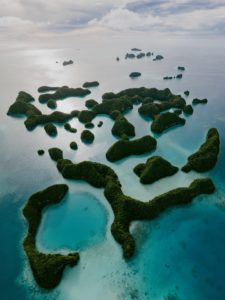
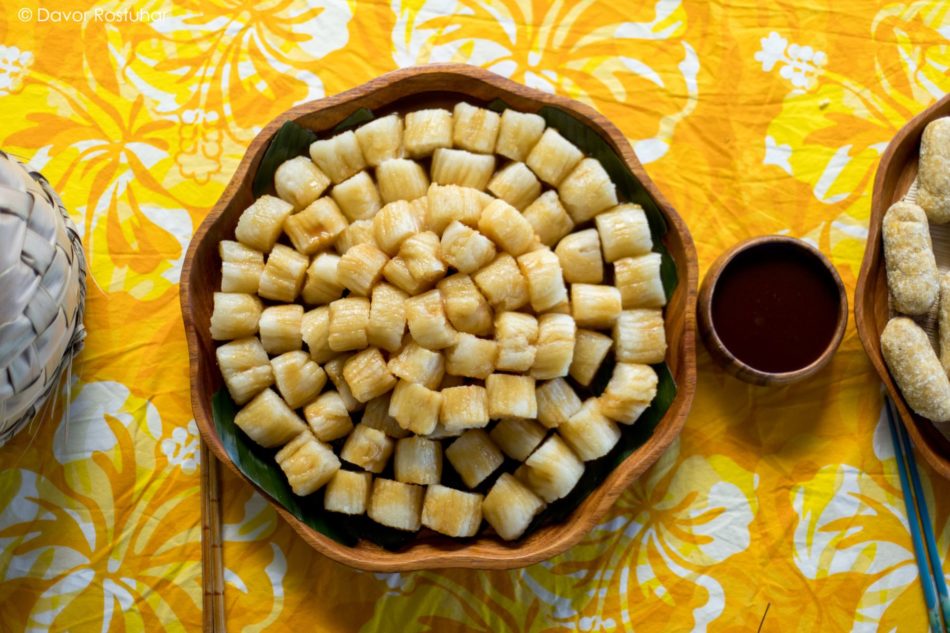

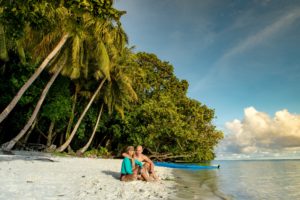
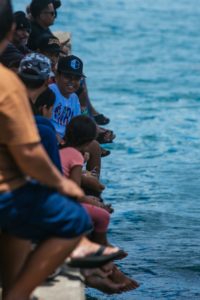
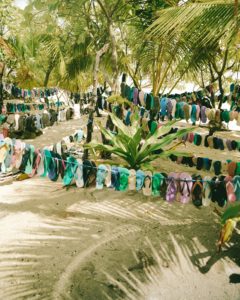
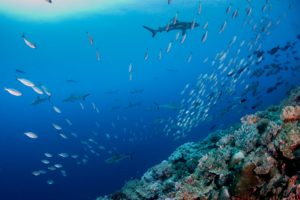

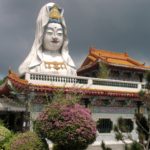
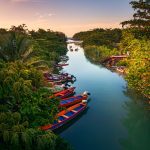
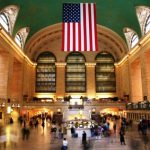
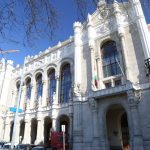


Leave a Reply